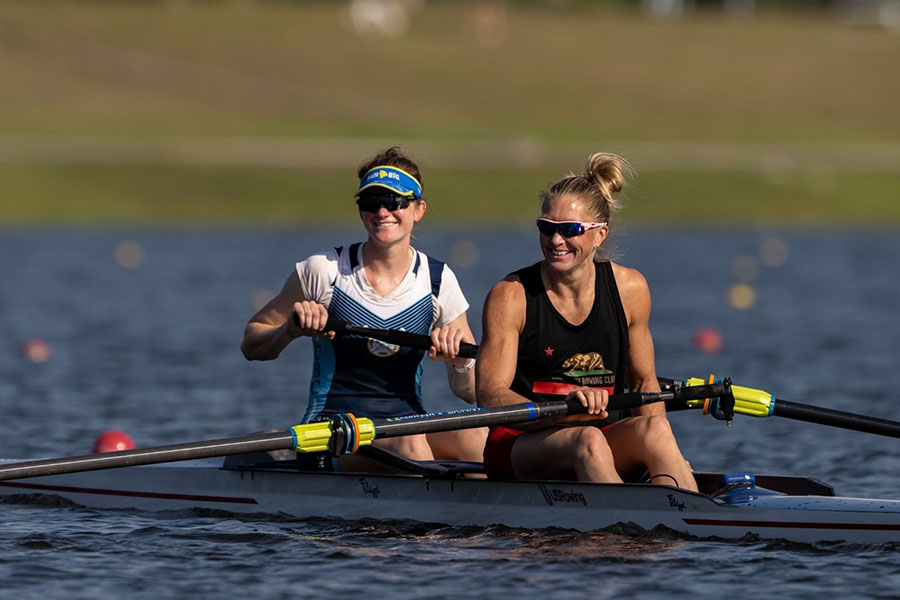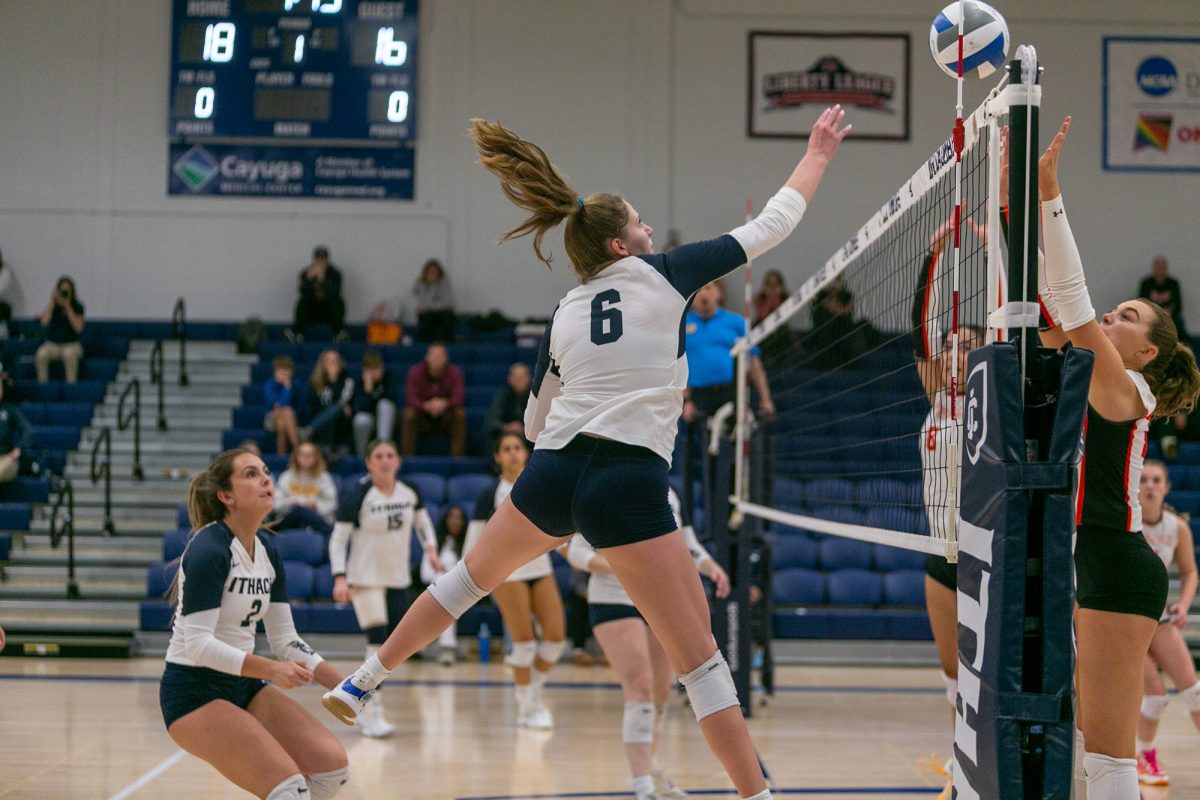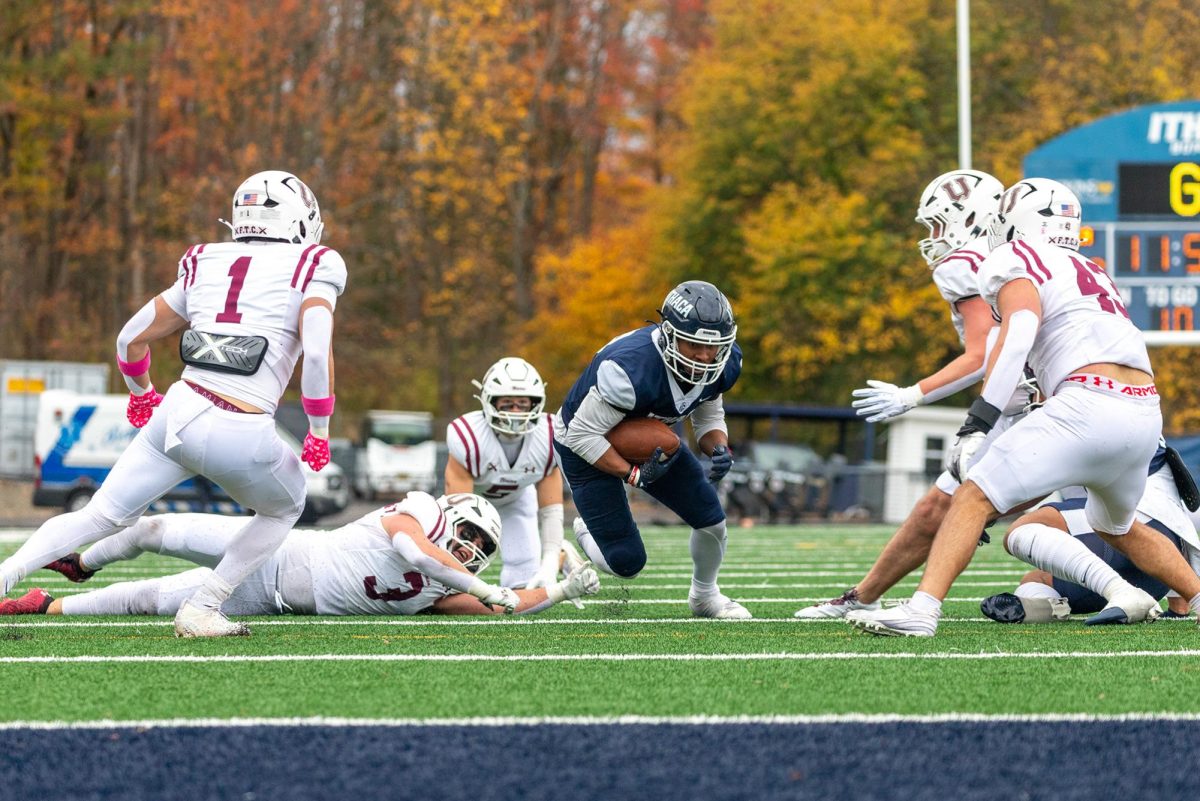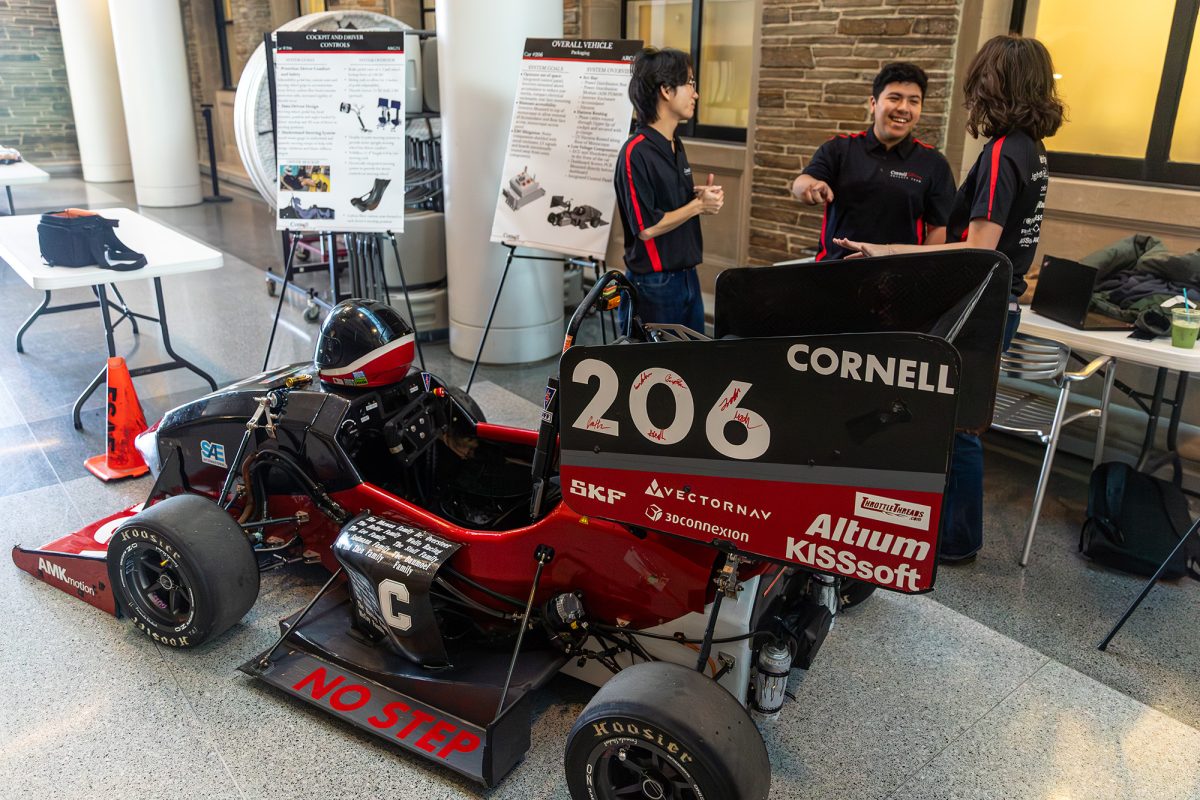Dynasty: a word thrown around so often in modern sports that it hardly means anything anymore. Winning a few championships or competitions within a short time frame is impressive, yet that does not fit the definition.
But if anyone ever asks Meghan Musnicki ’05 what a dynasty is, she could just point to the gold medals around her neck.
At 41, the 2013 Ithaca College Athletic Hall of Fame inductee is set to become the oldest American woman to row for Team USA as she gears up for her fourth straight Olympic appearance. She is also the last active member of the National Women’s Rowing Team’s eight dynasty, which won gold at every Olympic Games and World Rowing Championships from 2006 to 2016. In the middle of this run, Musnicki made her first national team in 2010, but implying that she started on the finish line would be misrepresenting her journey.
Musnicki first began rowing during her first year at St. Lawrence University before transferring to Ithaca College, starting her sophomore year. She said the transfer was partially because of a personal tragedy.
“I’m from the Finger Lakes area and Ithaca was one of the schools that I had looked at initially going to,” Musnicki said. “My father passed away suddenly [during] my freshman year, and so I wanted to be closer to home.”
Her father, Bill Musnicki ’75, was also an Ithaca College graduate. When he died of a heart attack in 2002, Musnicki was devastated. She said her family members have always been her biggest fans, with her father supporting her in every athletic endeavor.
Becky Robinson, women’s rowing head coach at the college, recalled her first impression of Musnicki being positive, an opinion reflected by the fact that she was rowing in the varsity eight as a newly transferred sophomore. Musnicki said her first impression was a little different.
“I was probably afraid of her a little because she was this strong, powerful woman,” Musnicki said. “I knew that she was passionate about the sport and coaching and was good at her job.”
Robinson said Musnicki’s presence was key to the Bombers winning consecutive national championships in the varsity eight, and those skills have taken her far.
“She was a captain senior year,” Robinson said. “It was her leadership that really helped the team … but she only had started rowing two years earlier and she was still in the development phase.”
After graduating from Ithaca College with a bachelor’s degree in psychology, she spent the next few years trying out for the U.S. women’s national team. She said the denial hurt more as she progressed, but with every attempt, she got closer to qualifying.
Musnicki said all of the disappointment accumulated over the three years of trying and failing just made her success on the fourth attempt feel that much more special.
“That was amazing,” Musnicki said. “Especially because I made it off of knowing how much work I put into it. … All of the disappointment and the setbacks and the stumbling blocks that you hit, on the other side of them, you can experience something wonderful. And that’s pretty exciting.”
The rest is history: Musnicki won 18 total medals across seven years of international competition, including seven gold medals as a part of the women’s national team’s eight; a bronze medal at the 2019 World Rowing Championships in Ottensheim, Austria; and retired in 2021 after a fourth-place finish in the 2020 Summer Olympics in Tokyo.
And that is where the story should end: with a 38-year-old Musnicki, already one of the oldest rowers in national team history, hanging up the oars for good.
But the story does not end there.
After unretiring, Musnicki was mostly practicing sculling in a single. However, she said she received a text from a familiar face: Alison Rusher, a former Stanford University rower and U.S. Rowing teammate during the 2020 Olympic cycle. Rusher, who was also practicing singles, said she wanted to return to sweeping and was on the verge of quitting altogether around the time she reached out to Musnicki.
“I didn’t even ask her if she wanted to be partners,” Rusher said. “[I] just said ‘Hey, what are you up to?’ because I wasn’t even sure if she was going to be racing.”
At the time, Musnicki lived in California, while Rusher was based out of Florida. So when Skip Kielt, Musnicki’s husband and coach, and Mike Teti, California Rowing Club coach, suggested having Rusher fly out to row pairs, Musnicki said it was no small feat.
“I texted her and I said ‘You want to come out here?’ and she’s like ‘OK, when?’ and I said ‘Tomorrow’ and, credit to [Rusher], she hopped on a plane and flew across the country to get in the boat with me,” Musnicki said.
Neither one of them came into the pairing with serious expectations from the beginning, but quickly both rowers realized they had something special on their hands. With only about a week of prep time, the pair posted a fourth-place finish in the final heat of U.S. Rowing’s 2023 Winter Speed Order, a national meet. Then, in April, the pair won the event at the National Selection Regatta, earning a berth to the World Rowing Cup II. Rusher said that was when both rowers realized just how far they could take this.
The pair won silver at the World Rowing Cup II, giving them a berth to the World Championships later that year. And thus, the final challenge stood ahead of them. To qualify the U.S. boat for the women’s pair, Musnicki and Rusher had to finish in the top 11 at the World Championships. In the semi-final, they vaulted into an A-Final spot and an Olympic berth they would hold for the rest of the race. They would end up with the sixth qualification spot, something Musnicki said she was very proud to have accomplished with Rusher.
As for now, Musnicki is in New Jersey training for the eight and Rusher is training after being selected as an alternate for the Olympic team. Musnicki said she felt the past year and a half she spent rowing with Rusher helped them grow closer as both teammates and friends, a sentiment that the latter reciprocated.
“[Rusher] is now one of my friends and I’m grateful for that because the year we spent together had some pretty trying moments,” Musnicki said. “We had some pretty great moments, but at the end of it all, we both came away with a friendship that we didn’t have before.”
Even amid all of this, Robinson said Musnicki still takes time to talk with current Ithaca College rowers.
“She’s come back multiple times to talk to the team and meet the athletes and tell them about her journey and share that as an alum and as an elite athlete,” Robinson said. “I think those experiences are invaluable for the student-athletes.”
The U.S. national team’s dynasty that lasted from 2006–2016 in the women’s eight may be over, but Musnicki said she does not see it as the end of an era.
“Each team has its own unique identity,” Musnicki said. “I compare it to a living organism. It has its ethos, it has its beliefs. I happened to be a part of those teams that were so dominant. … I hope that [experience] is something I can provide [to Team USA] — because the older athletes when I was younger provided that for me. But more importantly, I just want to be able to contribute to the team as a whole and help make us faster as a group.”














